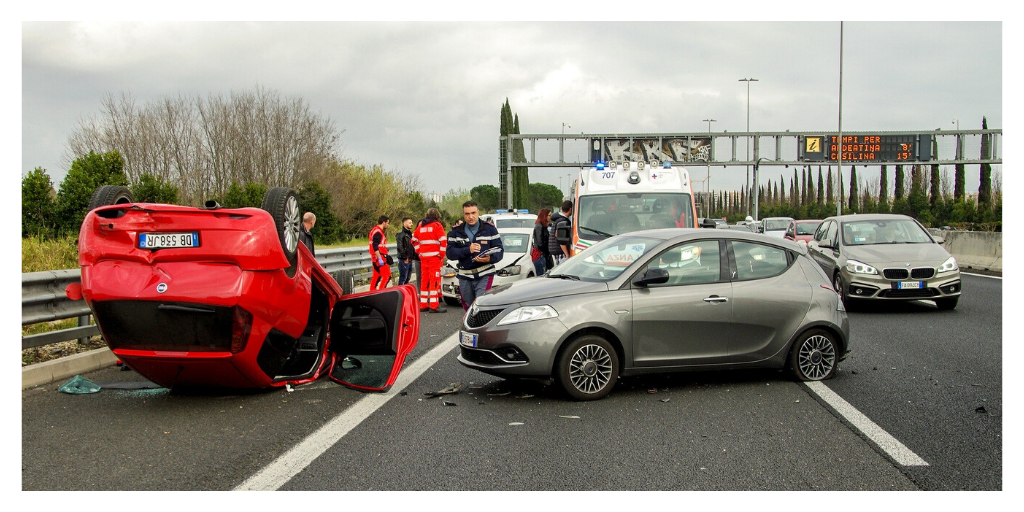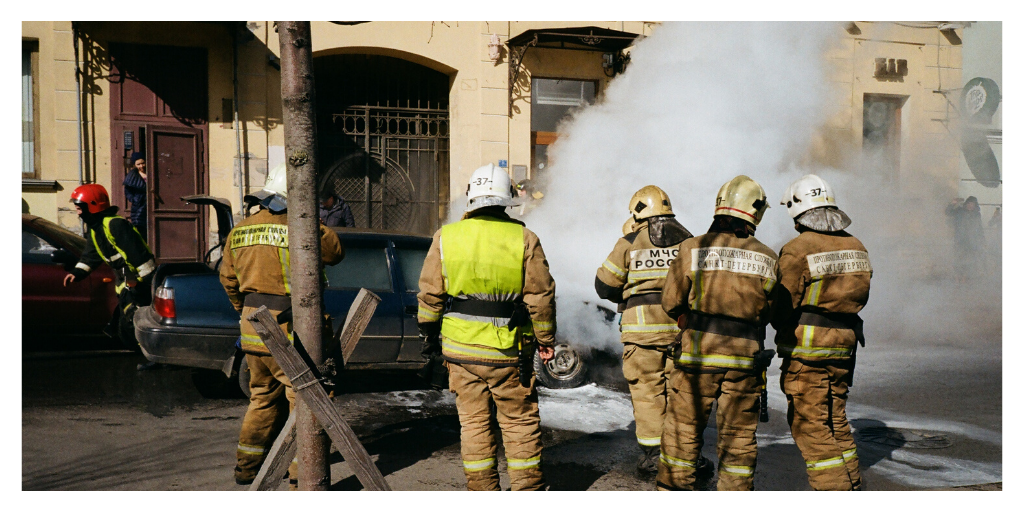Filing an Accident Report After a Car Crash
Car accidents continue to be one of the leading causes of accidental injuries and deaths in the USA. They are responsible for billions in property damage and other economic losses every year.
More than 6 million motor vehicle accidents occur each year in the USA, and according to the NHTSA, nearly 6% of all car accidents in the USA result in at least one death. Furthermore, roughly 27% of all motor vehicle accidents result in nonfatal injuries, some of which can lead to permanent disabilities.
Accidents happen, even to the most careful drivers. Once it occurs, though; you’re stunned with shock and dizzy with adrenaline. The first thing to do after you’ve been in an accident is to stay calm. While the post-accident procedures are fairly straightforward, it is not always easy. This is where we come to your aid.
Here’s everything you need to know about car accidents in Austin, Texas, and how to deal with the post-accident process, including filing a police report.
Contents
ToggleMotor Vehicle Accidents in Texas
Of all states, Texas continually leads the nation in the number of motor vehicle accident fatalities. Approximately 3,000 people are killed in car accidents in Texas each year, and from 2015-2016 there was a 5.45% increase in car traffic fatalities. That is at least one death every 2 hours and 25 minutes. Sadly, there were no deathless days on Texas roadways last year.
According to Austin Police data, the number of pedestrians killed rose from 31 in 2018 to 36 in 2019. Traffic deaths hit a 4-year high; 41 percent of which are pedestrians. Nearly half were killed on service roads or highways.
There isn’t any easy way to say this, but whether you live in Texas or not, an accident can happen to you at any time. Of course, you should be careful on the road, but that doesn’t guarantee you 100% safety. Therefore, you need to be well-informed regarding what comes next.
The First Thing to Do After an Accident
Do not panic.
It is vital to call 911 immediately after you have witnessed or been involved in an accident. Contacting law enforcement is a must in some states, including Texas. In fact, you’re required to notify the local sheriff’s office if the accident resulted in bodily injury or death. You must also inform law enforcement if the vehicles cannot be parked off the main road.
Once you have contacted the authorities, your duty is pretty much done in terms of protecting your interests, as well as following the law. If you’re wondering how this will come in handy, well, for starters, if there’s a lawsuit filed following the accident, contacting the authorities at the right time will have been one of your best-made decisions.
Filing a Police Report
Filing an accident report after a car crash is a crucial step in ensuring all the important details are documented and both parties involved are safe.
Outsiders think of Austin as being rowdy, and having tons of students at a thriving university only adds to that reputation. Depending on where the accident occurs, there are about 20 Police Agencies that may attend and conduct the Austin traffic accident reports. All of these agencies use the Texas DOT CRIS (Crash Report Information System). Therefore, obtaining a copy of your crash report from any of them is fairly easy.
Even if there’s insignificant damage, you must ensure a police report is filed to document what happened. The medical and physical damage isn’t always apparent when the accident occurs, and additional loss or injury may appear at a later time.
Furthermore, you cannot be certain about what the other party involved in the accident will do or say once you’ve left the scene. The police will help ensure all the details are precise and accurate.
Making a Claim
Just because you file an accident report doesn’t mean you’re automatically making an insurance claim. The report serves simply as a documentation of the accident.
Oftentimes, the parties to the incident decide to handle the financial problems among themselves instead of contacting their insurance companies, otherwise, you’ll have to call your insurance company up for details regarding how to proceed.
Note that filing the report will provide the insurance company with a basis concerning how to handle your claim, as well as give them a solid crash report.
We recommend you do not leave the scene immediately, at least not until the investigating officer conducts a report. If any legal issues should arise due to the crash, an accurate police report will ensure protection for you.
Accident Reports/Personal Injuries
Once an accident occurs, no one is at their best. You’ll likely be caught by surprise and not in a position to tell how you’re doing. Luckily, police have a lot of experience in spotting possible issues and can provide help. They will deal with the other party for you, providing some objectivity and relieving a lot of stress.
At the scene, the investigating officer will question everyone involved and fill in the report details. Personal injuries often don’t appear until a day or two have passed. If you did not file a report and there’s no record of the accident, it could make things more difficult for you in the long run, e.g., not receiving any insurance coverage for medical costs.
If An Officer Does Not Arrive at the Scene
You should always call the police while still on the scene, then let them decide what happens next. If you’re in a situation where officers don’t come to the location of the accident, make sure to document the incident and damage carefully yourself.
If an officer tells you they cannot make it to the scene, consider asking them what you should do. Take all the necessary information using a car crash form or an information checklist. Also, write down the name of the person you spoke to while reporting the incident, you might need it later for a settlement or in court.
- Look for witnesses
- Take notes, photos, make an audio/video recording using your cell phone of the location, damages, and the parties involved in the accident or witness versions of what exactly happened over there
- File your accident report with the police right away and give the investigating officer the data you collected
Remember, if the police aren’t there to help, you’ll have to file the report and insurance claim yourself. The data collected from the crash is one of the crucial tools in identifying the fault and who’s financially responsible for the accident.
What the Investigating Officer Will Do at the Scene
It’s important to note that the police will be there to help. They can provide support to all parties involved, interview witnesses, gather important information about the incident, and so on. They might also do the following:
- Jot down basic information
- Ensure the area’s security and safety for traffic and everyone involved
- Give tickets if required due to negligence or violations
- Call an emergency service that might also need to get involved, e.g., fire trucks, ambulances
- Talk to third parties, witnesses, or any other individuals involved
- Evaluate the scene to help prevent scams or other odd circumstances
- Prepare an accident report you can later use to make your insurance claim or present in court if necessary
Wrapping Up
Once the report is filed, get a card or direct contact information from the investigating officer.
Oftentimes after a car crash, you will remember additional yet important details only after you have had some rest. This information can be extremely vital, especially if the accident claims snowballs into a lawsuit.
Once you realize you have a few key details that weren’t reported earlier, contact the investigating officer and check whether you can include those details to the report.
Recommended For You
What Are Common Types of Sexual Assault Lawsuits?
Most Inside
Most Inside offers high-quality recommendations and valuable updates to enhance all aspects of your life, providing premium guidance and enriching experiences.







